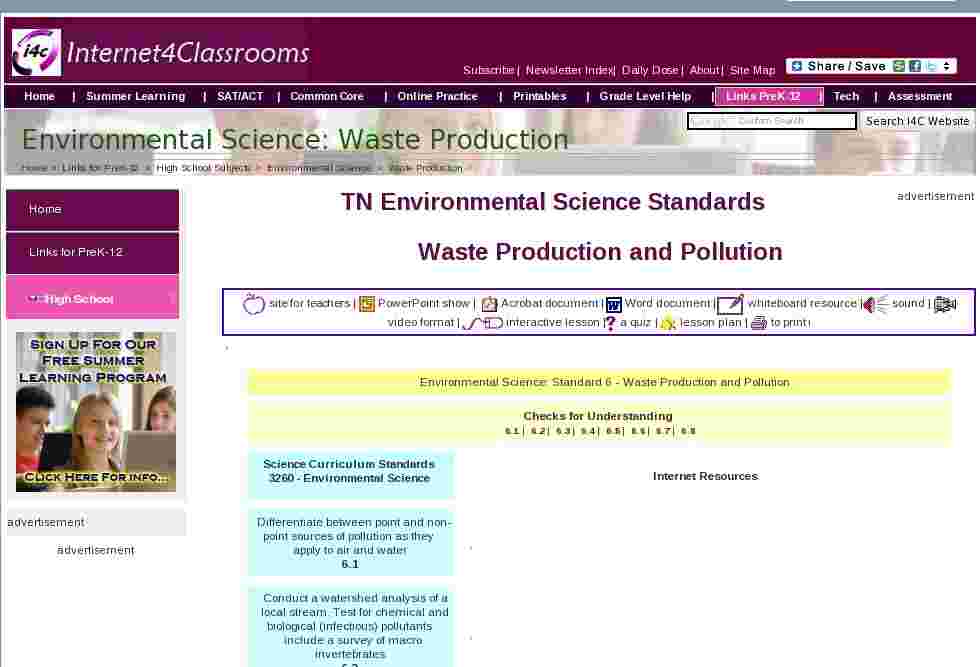Environmental Science: Standard 6 - Waste Production and Pollution |
|
Science Curriculum Standards
3260 - Environmental Science
|
Internet Resources |
Differentiate between point and non-point sources of pollution as they apply to air and water.
6.1 |
|
Conduct a watershed analysis of a local stream. Test for chemical and biological (infectious) pollutants include a survey of macro invertebrates.
6.2 |
|
Investigate a state or local environmental issue involving pollution of land, air or water.
6.3 |
|
Explore case studies of human health problems related to pollutants.
6.4 |
|
Research major U.S. Environmental Legislation such as National Environmental Policy Act of 1969 (NEPA), The Clean Air Act, The Clean Water Act, Comprehensive Environmental Response, Compensation, and Liability Act (CERCLA or Superfund), Federal Insecticide, Fungicide and Rodenticide Act (FIFRA), The Oil Pollution Act of 1990 (OPA), The Pollution Prevention Act (PPA), The Resource Conservation and Recovery Act (RCRA), The Safe Drinking Water Act (SWDA), The Toxic Substances Control Act (TSCA).
6.5 |
|
Compare and contrast industrial agricultural practices emphasizing use of petroleum based pesticides and fertilizers with organic methods of food production that utilize integrated pest management and organic composting.
6.6 |
|
Conduct a survey about waste management/recycling habits and opportunities in your community. Report findings in an article written for a local newspaper, a pod-cast or on a local talk radio show.
6.7 |
|
Investigate what watershed your school is located in and how wastewater, municipal solid and hazardous wastes are handled.
6.8 |
|
site for teachers |
PowerPoint show |
Acrobat document |
Word document |
whiteboard resource |
sound |
video format |
interactive lesson |
a quiz |
lesson plan |
to printt

 Custom Search
Custom Search